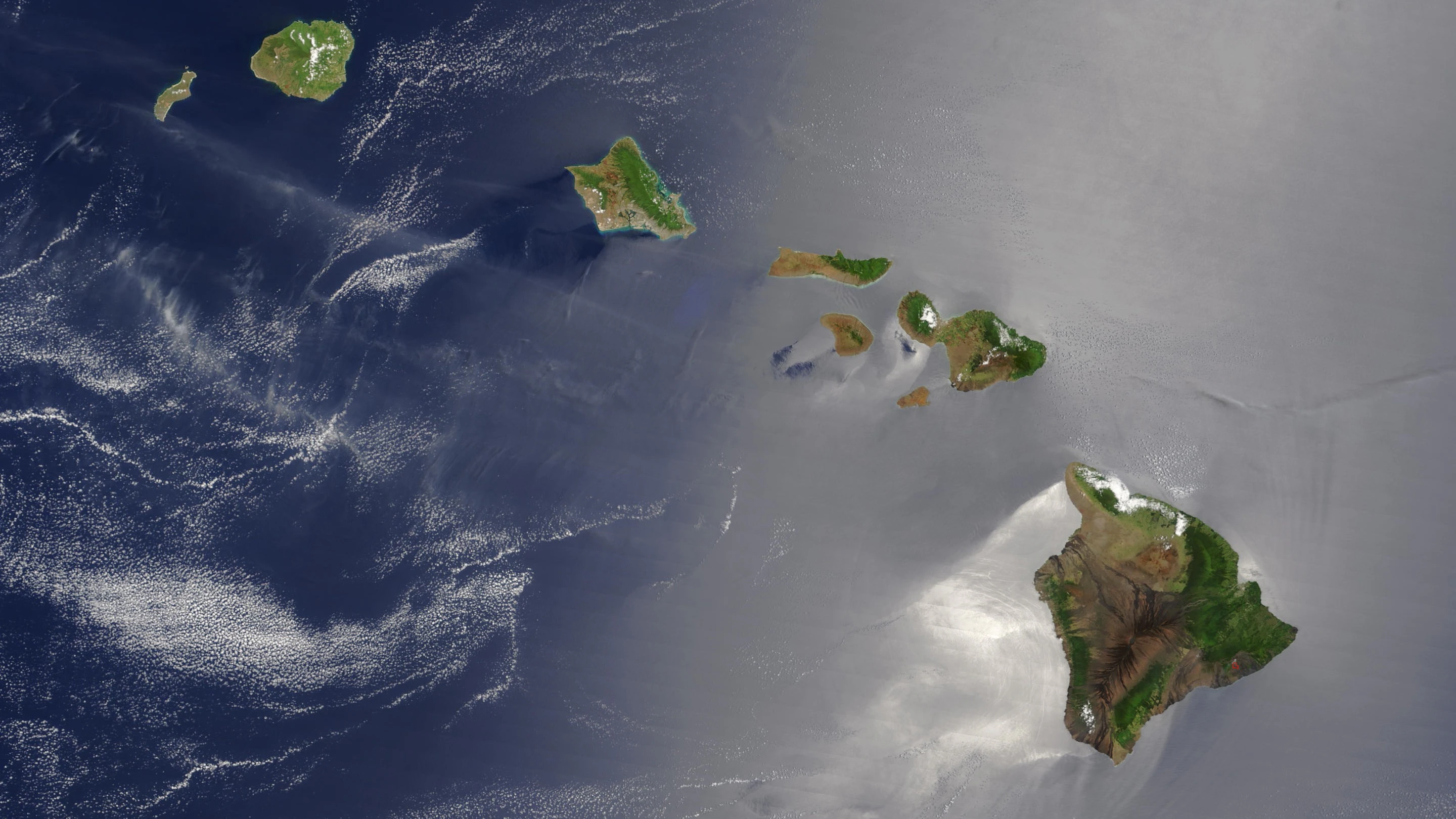A collection of environmental organizations sued the Trump administration this week to protect the Pacific Islands Heritage Marine National Monument from commercial fishing.
In April, President Donald Trump issued a proclamation titled “Unleashing American Commercial Fishing in the Pacific,” declaring that commercial fishing shall be permitted by U.S. vessels within most waters of the Marine National Monument (formerly called the Pacific Remote Islands Marine National Monument), a series of protected waters surrounding Wake Island, Johnson Atoll, Jarvis Island and other islands south and west of Hawai‘i.
Collectively, the PIHMNM covers about 490,000 square miles of ocean. Trump’s proclamation would open the vast majority of that area to fishing, save for the area within 50 nautical miles of each of the islands within the Monument.
California organization Earthjustice filed a lawsuit on Thursday on behalf of Hawai‘i groups Kāpa‘a, the Conservation Council for Hawai‘i and the Center for Biological Diversity. The lawsuit names as defendants Trump, Secretary of Commerce Howard Lutnick, acting administrator of the National Oceanic and Atmospheric Administration Laura Grimm, NOAA Fisheries administrator Eugenio Piñero, and Secretary of the Interior Doug Burgum.
David Henkin, Deputy Managing Attorney for Earthjustice’s Mid-Pacific office, told Aloha State Daily that Trump’s proclamation has no legal standing.
In 2009, Henkin explained, then-president George W. Bush established the PIHMNM via the powers established in the Antiquities Act (or the Act for the Preservation of American Activities), which allows for legal protection of cultural and natural resources. Then-president Barack Obama expanded the PIHMNM in 2014 using the same powers.
Trump also purported to use the Antiquities Act in his April proclamation, but Henkin said that isn’t legally possible.
“The Antiquities Act is a one-way ratchet,” Henkin said. “It can create, but it can’t destroy.”
Specifically, the lawsuit argues, the Antiquities act authorizes the president to designate national monuments or reserve areas for protection, but does not authorize the president to undo those actions.
Any effort to remove legal protections from federal land would have to go through Congress, Henkin said, and can’t be unilaterally enacted with a single stroke of the president’s pen.
Furthermore, Henkin said, the U.S. National Marine Fisheries Service published on April 25 a letter stating that, pursuant to Trump’s proclamation, commercial fishing is no longer prohibited in certain areas of the Monument.
This, Henkin said, is also illegal, violating the Magnuson-Stevens Act, which requires the NMFS to follow a standard public comment rulemaking process before making any fishery management changes.
The lawsuit, filed in U.S. District Court, requests that the court declare that the proclamation exceeds the scope of his authority and issue injunctive relief barring the implementation of the proclamation.
Beyond the legal questions, Henkin said Trump’s justifications for the proclamation don’t hold up.
“As a result of the prohibitions on commercial fishing, American fishing fleets have lost access to nearly half of the United States’ Exclusive Economic Zone in the Pacific Islands,” the proclamation reads. “This has driven American fishermen to fish further offshore in international waters to compete against poorly regulated and highly subsidized foreign fleets.”
But Henkin said Monument waters were not heavily fished even before 2009, and that commercial fishers are easily able to reach federally mandated take limits very quickly each year.
“We’ve got to wonder why Trump though it was important to remove these protections,” Henkin said. “There have been economic studies done that show that, when you protect an area, abundance overflows.”
Pelagic tuna, which Henkin said would be the primary fish sought in Monument waters, are not bound by the invisible boundaries of the Monument. In protected waters, Henkin said, tuna populations build and expand outward beyond those boundaries, where fishers can freely take them.
“It’s just not necessary,” Henkin said. “It reflects a poor understanding of the ecosystem.”
At the same time, tuna are not the only fish within the Monument. Those waters are home to a wide variety of sealife, including endangered leatherback sea turtles, whose populations could be irrevocably impacted by commercial fishing: “If you let a bull into a china shop even just once in a while, it has a devastating impact,” Henkin said.
In April, the Hawai‘i Longline Association published a letter in Aloha State Daily in support of the proclamation, with executive director Eric Kingma writing that Hawai‘i's fishers have to compete with nationally subsidized foreign fishing fleets in international waters, while the United Nations has implemented further regulations on protected waters since the Monument was established.
"Hawai‘i residents consume seafood at twice the national average. Hawai‘i residents should support actions that support locally produced seafood — the alternative is foreign imported, low quality ‘ahi that is unregulated and unmonitored, bad for consumers and the environment," Kingma wrote.
Trump’s proclamation claims that existing conservation laws make up sufficient protection for endangered sea life within the Monument.





